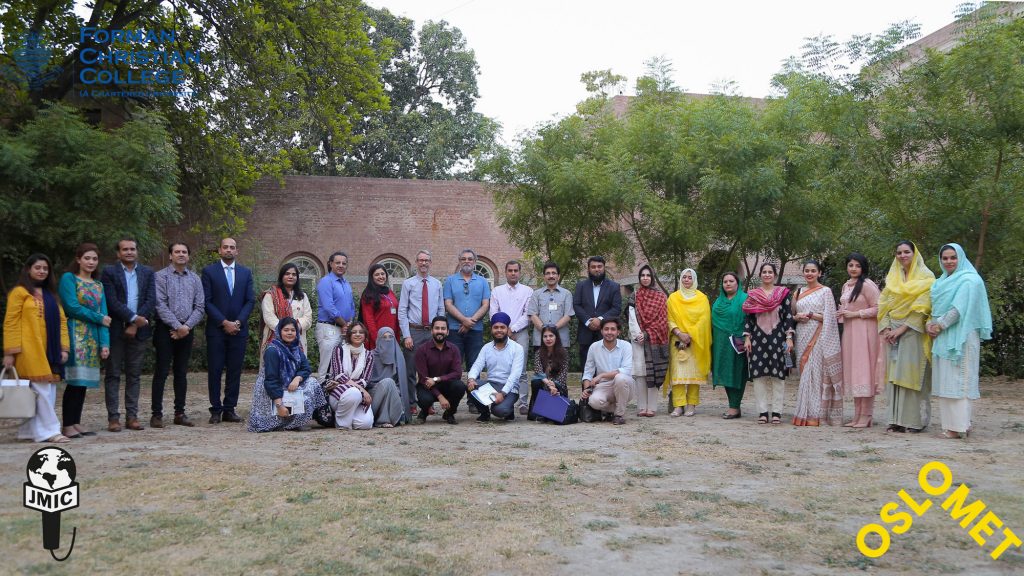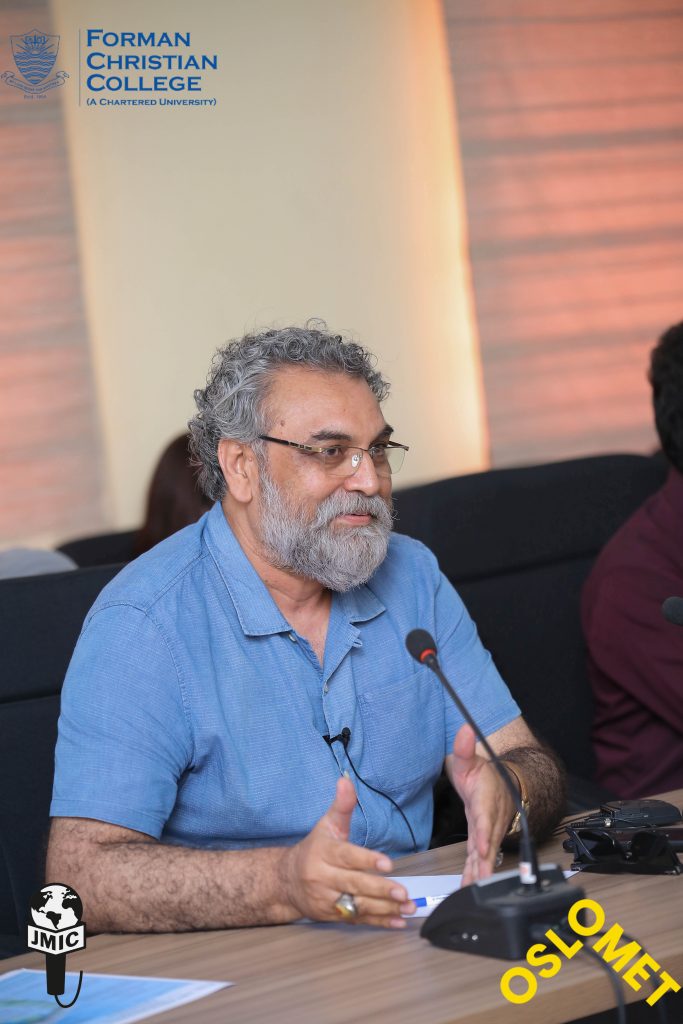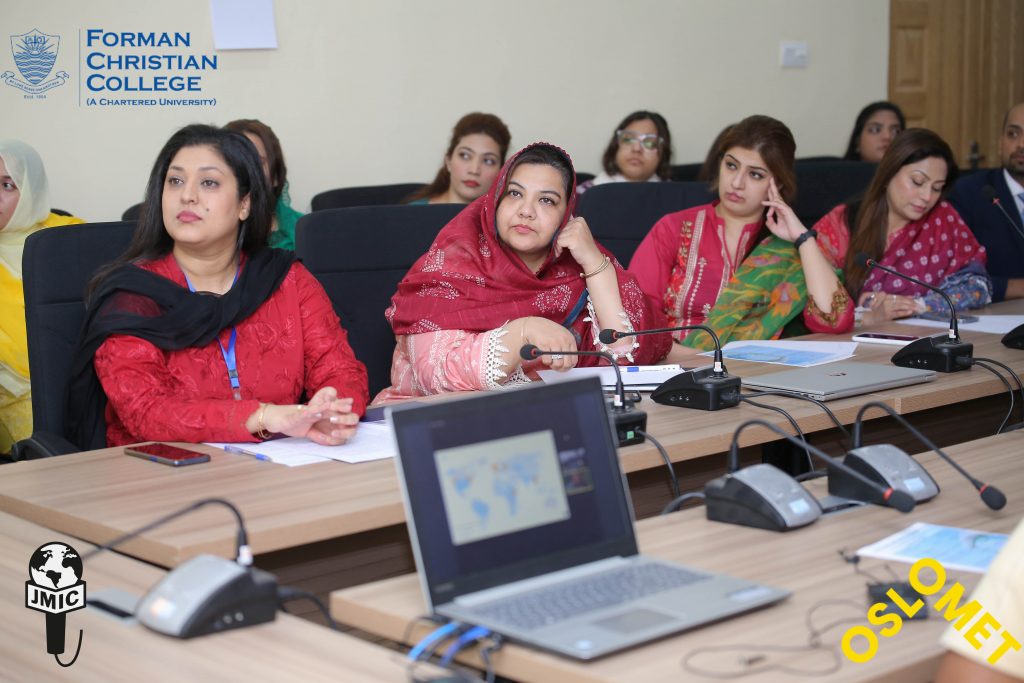Workshop on Climate Journalism Education
The Faculty of Humanities, Forman Christian College (A Chartered University), in collaboration with JMIC, hosted a one-day workshop on Climate Journalism Education 1st June 2022.
The workshop was attended by academicians, postgraduate students and journalists joining in from all over Pakistan and abroad.

It discussed ways of teaching climate journalism and helped provide ideas for training journalism students through the collective effort of academicians and journalists who have worked in the field and are aware of the climate crisis.
Dr. Altaf Ullah Khan, Dean of Humanities at FCCU, inaugurated the workshop and gave a keynote speech in which he stated, “If we, as academicians, have a good understanding of climate crisis, only then we will be able to train our students in the best possible way on its journalistic perspective as well. Since climate change is both our present and our future.”

The workshop was moderated by Rachel Hasan, Chairperson Department of Mass Communication. Dr Elisabeth Eide, Co-Director Media Climate Network and Professor of Journalism from OsloMet, gave a brief introduction of the workshop and gave the floor to Dr Derk Bakker, Associate Professor and Chairperson of Department of Environmental Sciences, FCCU. He highlighted the impacts and solutions for climate change.

Dr Elisabeth Eide later built up on his speech and shared why climate change is a concern for journalists and journalism students. She shared the models for education on climate journalism and stated: “It is crucial to combine studies with field visits for students as well and help them learn from local experts and indigenous people.”
Moreover, Hannah Bernstein, science journalist and project manager at Internews’ Earth Journalism Network, along with Syed Abubakar, Environment journalist and media trainer, and Syed M. Saqib, Assistant Professor of Mass Communication, FCCU, further discussed ways to train students to cover climate stories and what can be included in the courses to enhance future journalists’ capacity to report on climate. They were of the view that it is high time, climate journalism was integrated into the curriculum for journalism students in Pakistan.


Finally, Muhammad Daud Khan and Stella Paul, the two famous climate journalists working in the field and setting a precedent for others to follow, joined the workshop and shared that: “As journalists, we are storytellers and are also the mediators between people at the frontline of climate crisis and masses. So, we have to be the ones to tell the missing stories to the world.”
The workshop was concluded with some final remarks by Dr Elisabeth Eide and Oona Solberg. Dr Douglas Trimble, Vice-Rector, FCCU, was also present at the occasion and gave his concluding speech. After that, certificates were distributed among the participants.
Overall, the training was informative and valuable for participants and encouraged them to become change makers within their institutions and support the efforts to introduce climate journalism education courses for journalism students in Pakistan.
